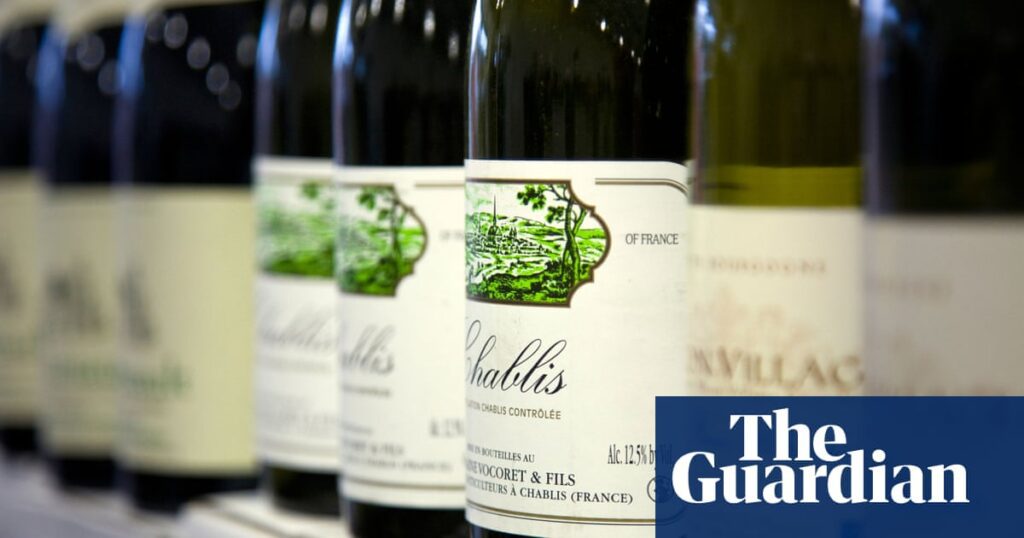British consumers have been told that the price of some of their favorite red wines could rise by more than 40p next year after the government ignored pleas from the wine industry to abandon complex post-Brexit tax changes.
The new alcohol duty regime, which will come into effect in February 2025, will increase the number of wine tax bands from one to 30, and will cost businesses huge sums to administer, Majestic Wine chief executive John Colley said.
Steve Finlan, chief executive of the Wine Association, said the plan was “ridiculous, expensive and probably unworkable”.
The post-Brexit alcohol tax reform, which would tax alcohol by volume (ABV) rather than by type of alcohol, was formally introduced last August after being mooted by the Treasury when Rishi Sunak was chancellor. Under the plan, the amount of fees paid rises by 2p for every 0.1% increase in strength.
The government recognized the new administrative burden on companies and set an 18-month “easement” period. During this period, all wines between 11.5% and 14.5% must pay a tax of £2.67, i.e. an ABV duty rate of 12.5%.
The wine sector has been lobbying the government to keep the easement rules in place permanently, but Gareth Davies, Treasury secretary at the Treasury, confirmed earlier this month that it would go ahead.
This has prompted companies like Majestic Wine, which has more than 200 stores across the country, to speak out, saying it will lead to higher prices and a huge administrative burden on sellers.
“The Minister in this discussion has demonstrated a worrying lack of understanding of our sector, suggesting that the alcohol duty system has become simpler and easier since Brexit,” Cawley said. “This is simply not the case. In fact, the system in place before Brexit was much easier to administer.
An analysis by the Wine and Spirits Trade Association (WSTA) found that when easements expire, about 43% of wine prices will rise. The tax on a bottle of wine with an ABV of 14.5%, the highest percentage subject to the rules, will increase by a maximum of 42p to £3.09.
Red wine will be the most affected due to its high alcohol content, and prices are expected to rise by 75% starting next February.
The changes will lead to huge administrative costs for companies, which will have to calculate the tax due on each wine. Even small stores can sell hundreds of different types of wine.
Hal Wilson, co-founder of Cambridge Wine Merchants, said the new rules would require checking and recording the alcohol content of nearly 90% of the bottles it bought. He said this would lead to a seven-fold increase in staff workload, which is “unviable” for the company.
For the wine association, which stocks tens of thousands of wines, the changes were “next to impractical” and would result in higher prices for consumers, Finlan said.
The signing of the Business today
Get ready for the workday – we'll guide you to all the business news and analysis you need every morning
Privacy Notice: Newsletters may contain information about charities, online advertising and content sponsored by third parties. For more information, see our privacy policy. We use Google reCaptcha to protect our website and the Google Privacy Policy and Terms of Service apply.
After promoting the newsletter
At a Westminster Hall debate by former health secretary Will Quince last week, some pro-Brexit MPs, including Priti Patel and Julian Sturdy, backed industry calls for the status quo to continue.
The latest changes come after wine sellers were hit with a 20% rise in tariffs on 85% of wine last year, the highest increase in 50 years.
Miles Bell, chief executive of the WSTA, said: “Cutting red tape should certainly be a priority for the Conservatives, who often refer to it as the ‘Brexit interest’.”
“We are not calling for further reform, we are simply calling on the government to maintain the current simplified procedure for taxing wine to avoid what would be a very costly mistake.”
A Treasury spokesperson said: “We have engaged closely with the wine industry throughout the consultation on landmark reforms to alcohol duty. The industry has benefited from freezes in six out of 12 other financial events.
The changes will also remove the premium for sparkling wine, so sellers will pay the same amount of duty on them as still wines of the same ABV. Duty on many low-strength drinks, such as beer, has been reduced.


